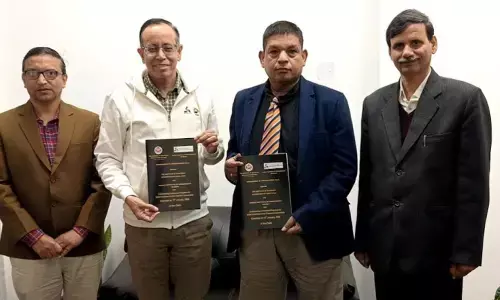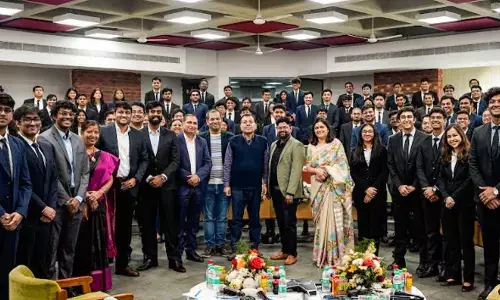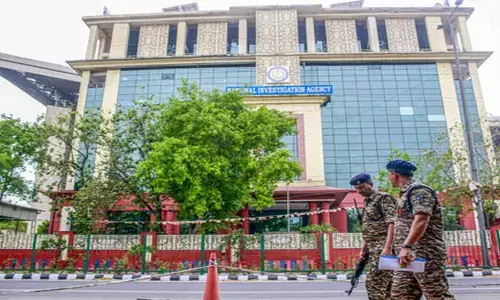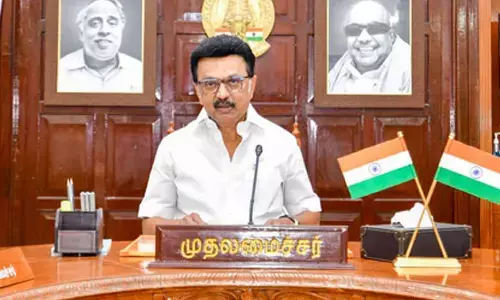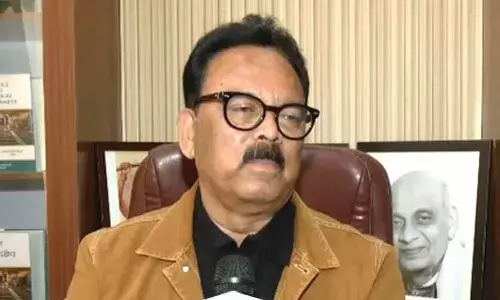Global safety nets to check currency, market volatility needed: FM Jaitley
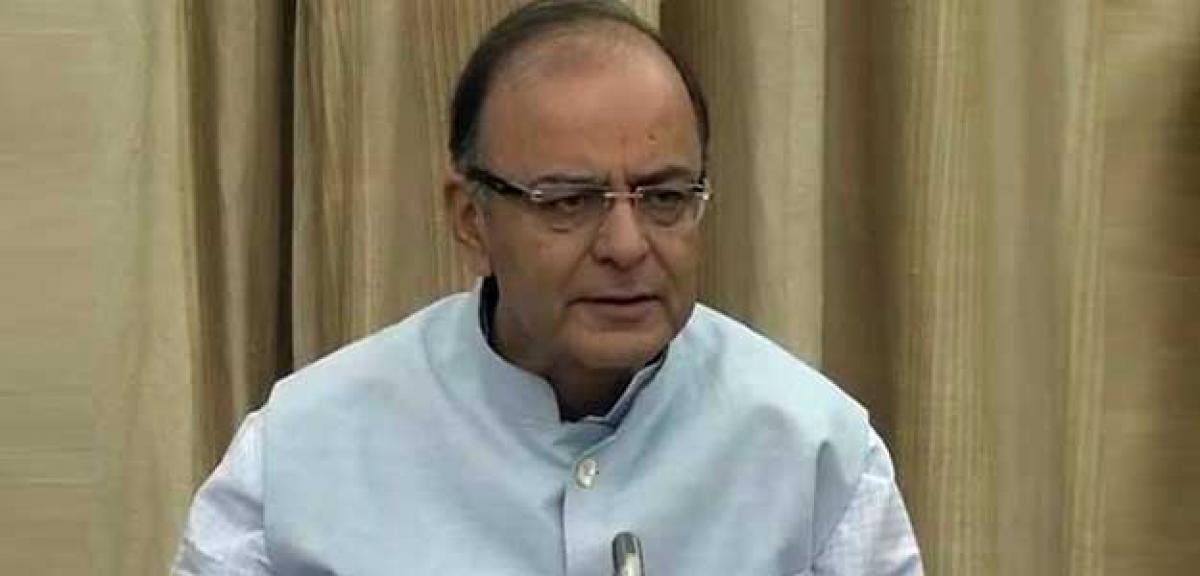
India on Saturday made a strong pitch for global safety nets to tackle volatility in currency movements and markets, a demand that has come against the backdrop of economic shocks triggered by Chinese devaluation of yuan.
India on Saturday made a strong pitch for global safety nets to tackle volatility in currency movements and markets, a demand that has come against the backdrop of economic shocks triggered by Chinese devaluation of yuan.
Finance Minister Arun Jaitley also sought a well-designed and quickly-triggered safety nets under IMF like strengthening of liquidity arrangements via multilateral swap arrangements between member countries.
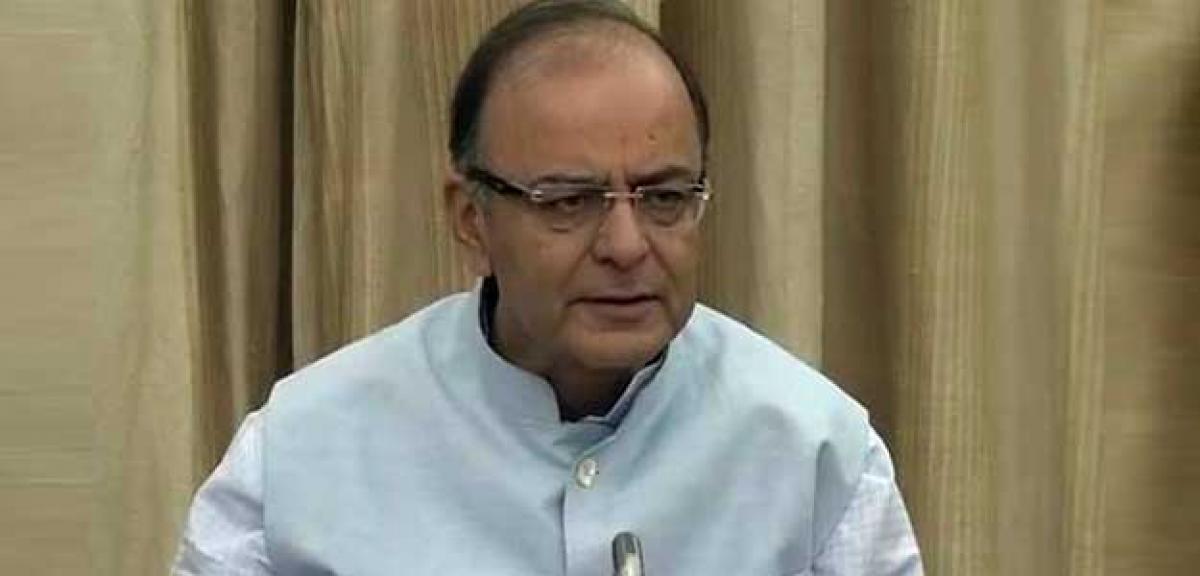
"Recent episodes of market volatility and currency movements again pose a lingering question on the need for global safety nets for addressing market concerns.
"I strongly believe that ad hoc, individual, reactionary measures can contain the adverse impact of such events only for a limited period. These cannot provide a sustainable solution which can happen only by global policy coordination," Jaitley said.
He did not name China but was apparently referring to the global shocks China caused with its currency devaluation following its economic slowdown and the impact it had on economies including India.
Jaitley was making an intervention in the session on 'Framework for strong, sustainable and balanced growth' at the G20 meeting of Finance Ministers and Central Bank Governors.
With top economic policymakers from across the world looking to tackle challenges arising from slowdown in China for global growth, Jaitley made a detailed presentation while co-chairing the session which was the second of the G20 Meeting of Finance Ministers and Central Bank Governors.
He said if the USP of G20 is collective and coordinated action, then G20 should seek policies which do not place the burden of tackling the impact of negative spillovers of domestic policy actions solely on affected countries.
"The G20 should, therefore, seek to strengthen liquidity arrangements via multilateral swap agreements between member countries, possibly coordinated by the IMF. Such well-designed and quickly triggered safety nets should be explored under IMF," the Minister said.
Last night, Jaitley and RBI Governor Raghuram Rajan participated in the first session on 'Global economy' where IMF chief Christine Lagarde said that India is among the few bright spots in the global economy.
At a time when the growth remains weak in developed and emerging economies like China were also witnessing slowing down of its growth, India continues to grow at a decent pace, Lagarde had said.
Referring to the theme of this year's G20 meeting, the three I's of Inclusiveness, Implementation and Investment for Growth, Jaitley said, "While we have considerably enhanced our inclusive growth efforts, our efforts related to Implementation and Investment for growth needs to be accelerated in light of the challenges posed by repeated downward adjustments to global growth projections. "
He said that the preliminary implementation status of Brisbane G20 meeting commitments, as shared by the international organisations, shows that around one third of the commitments have been completed and progress is being made on majority of the remaining ones.
However, "considerable challenges stem from the fact that implementation is lagging in relatively larger economies, hence significantly affecting the growth impact."
The Finance Minister also asked international organisations, such as IMF, to provide the final quantitative assessment "well in time so as to give sufficient time to members to seek clarifications, if any and work on the strategies in case they find it relevant".
"We acknowledge that the Accountability Assessment exercise this year is far more rigorous and will considerably strengthen the credibility of the exercise," he added.
Talking about the third I, that is Investment, Jaitley asked the G20 member countries to introspect whether their efforts on this front have been satisfactory.
"Given the potential of infrastructure investment to simultaneously address our demand side and supply side constraints, India has been reiterating the need for improved global long term financing for infrastructure projects and the need for better policy coordination at international level for stable macroeconomic settings and improved business climate."
The Finance Minister and RBI Governor also participated today in a session on investment and infrastructure, while there were three more sessions scheduled for the day including on international financial architecture, financial regulations and international tax issues.
Last night, Rajan had said here that the global economies witnessing sustainable growth need to hike rates, although not in a "one go, big bang" manner.
While Rajan did not name the US or the Federal Reserve, his comments come in the backdrop of the widespread speculation about an imminent rate hike by the US central bank. He also said that the concerns about market volatility should not come in way of the decision of the central banks.
"We risk, as central banks, being trapped in a prisoner's dilemma: nobody wants to be the first to leave this extremely accommodative situation.
"We prolong a period of extreme monetary accommodation, but without the volatility that eventually has to emerge," Rajan had said here at a meeting of B20 on the sidelines of the G20 Meeting of Finance Ministers and Central Bank Governors.
Speaking at today's session on strong, sustainable and balanced growth, Jaitley also suggested to G20 members to "work out an effective communication strategy which strikes a right balance by convincing various stakeholders about the seriousness of our growth efforts and at the same time suitably explain the challenging global economic scenario in which our strategies are operating."
On growth strategies, Jaitley said one major addition to this year's adjusted strategies has been the voluntary reporting on issues of secular stagnation, fiscal policy composition, inclusive growth and domestic policy spillovers.
"This gives members sufficient opportunity to explain and remind the group about the specific setting in which their domestic policies operate including the structural diversity.
"The new commitments received in adjusted strategies also confirm our perception of the document as a living document. However, as per the preliminary assessments carried out by the IOs (International Organisations) and peer review, these new commitments might not be ambitious enough for meeting our 2 in 5 objective.
"Though final assessments are in process, I would suggest members to revisit their commitments to see if they qualify on the original parameters of being new, realistic and ambitious.
"I also encourage members to utilise the opportunity presented by adjusted strategies for informing the group about their prospective policy actions that can have significant spillovers on other members.
"Given the significant amount of space that the issue of declining potential output in major economies occupied in this year?s FWG (Framework Working Group) discussion, I suggest that our efforts for goods movement and capital liberalisation should be complemented by skilled labour mobility.
"This will be of considerable help to countries facing demographic challenges due to ageing populations."
Next Story













